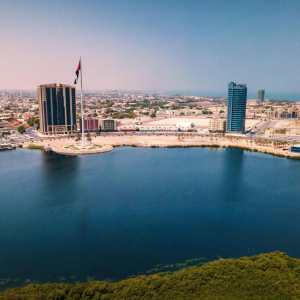Protecting Lives in the Heat of the Desert
Every summer, as the sun rises higher and the temperatures in Dubai soar past 45°C, something remarkable happens across the city. Construction sites go quiet. Laborers retreat to shaded areas. Machinery slows down or comes to a halt. It’s not a coincidence—it’s a conscious decision backed by law and compassion. This is the result of the Midday Work Ban, a government initiative that has been a lifeline for thousands of workers braving the UAE’s intense summer.
While the city is known for its glitzy towers, luxurious malls, and ambitious architecture, it’s also home to a huge workforce that builds and maintains these marvels. For them, working under the scorching midday sun is not just uncomfortable—it can be dangerous. That’s where the Midday Work Ban steps in as a protective shield.

Understanding the Midday Work Ban
The Midday Work Ban is a seasonal rule implemented in Dubai and across the UAE. It restricts outdoor work during the hottest hours of the day, usually from 12:30 PM to 3:00 PM, throughout the peak summer months—typically from June 15 to September 15.

During these hours, companies are legally obligated to stop outdoor labor, particularly for those in construction, agriculture, logistics, and other physically demanding sectors. It’s a policy that shows how governance can genuinely care for the health and wellbeing of people who contribute so much behind the scenes.

Why the Ban Matters: It’s a Lifeline, Not a Luxury
Working in extreme heat puts serious stress on the body. From heat exhaustion to sunstroke, the risks are real and can escalate rapidly. For workers dressed in heavy uniforms or protective gear, the sun isn’t just harsh—it’s potentially lethal.
The Midday Work Ban doesn’t just help people stay cool. It literally saves lives. With temperatures crossing 50°C at times, taking a break during the hottest hours can mean the difference between life and death.
This rule is more than a regulation—it’s a message that people matter more than profits. It signals that laborers, many of whom leave their families behind in other countries to earn a living in Dubai, are being looked after.
How Companies Adapt During the Ban
Many companies use the midday break as an opportunity to reorganize shifts, improve logistics, or even invest in indoor training sessions. The smarter ones have already shifted towards morning-heavy schedules, ensuring work begins earlier and winds down before the sun reaches its peak.
Firms that truly care go a step further—providing cool rest areas, shaded tents, and plenty of drinking water. These are not just requirements—they are gestures that boost morale and show a sense of shared humanity.
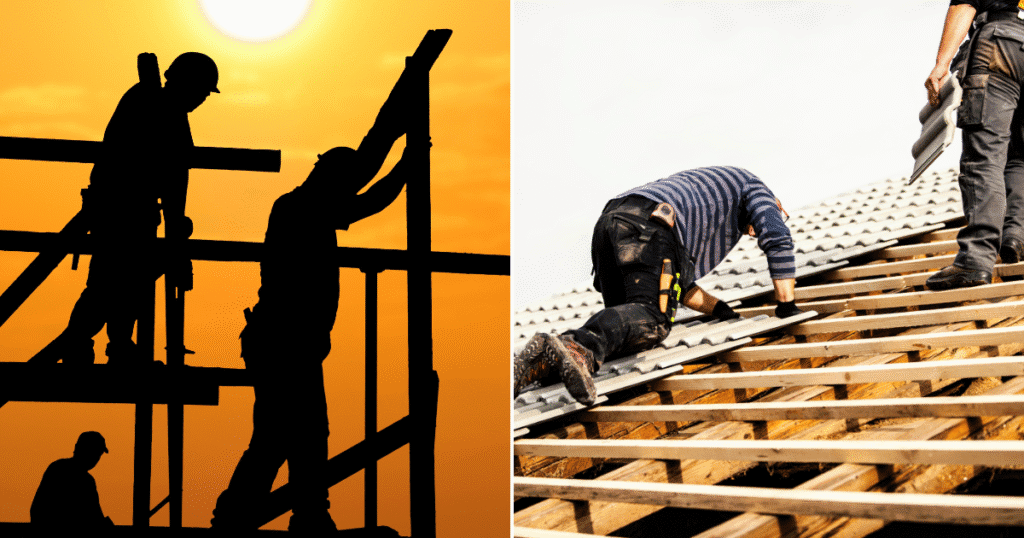
Employers are also expected to display the Midday Work Ban timings clearly at worksites and train their supervisors to comply with the law. Non-compliance is met with heavy penalties, and rightly so, because nothing should come at the cost of a worker’s health.
Stories Behind the Scenes: Real People, Real Impact
For Ramesh, a construction worker from Nepal, the midday break is more than just a pause in work. “It’s the time I sit, drink water, and call my son back home,” he shares with a smile. “I know it’s very hot, but I feel safer now than before.”
Ahmed, a logistics manager from Egypt, mentions how the ban has changed the company culture. “Before, we used to push through the heat. Now, we plan smarter. We use mornings better, and our workers are happier. They work better, and they fall sick less.”
These small stories paint a bigger picture. It’s not just about enforcing a rule; it’s about humanising work. It’s about recognising that behind every brick laid and every road built, there are real people who deserve respect and protection.
Dubai’s Leadership Shows the Way
What stands out about Dubai’s approach is how proactive and consistent it has been in protecting its workforce. Authorities conduct surprise inspections, issue reminders, and even encourage the public to report violations.
Every year, campaigns are launched to spread awareness about heat safety, hydration, and rights. It’s not just the responsibility of employers—everyone is encouraged to play a part in making the summer safer for the most vulnerable.
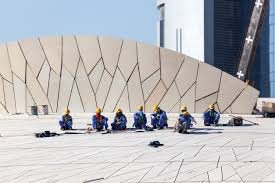
The leadership in Dubai has proven time and again that growth does not need to come at the cost of basic human comfort. In fact, policies like the Midday Work Ban help create a more sustainable, fair, and resilient workforce.
What Workers Need to Know
Workers who are employed in outdoor roles are entitled to this break, and they should never feel pressured to work through it. If they are being forced to work, they can report the violation to local authorities.
In addition to the break, employers must also provide essential cooling and hydration support—things like shaded rest areas, air-conditioned rooms when possible, and unlimited access to clean drinking water.
It’s also advised that workers wear light, breathable clothing and take frequent breaks even outside the restricted hours if they begin to feel unwell. Heat illnesses can sneak up quickly, and awareness can prevent major health issues.
A City That Cares About Everyone
While the Midday Work Ban is rooted in legislation, its spirit goes far beyond the written law. It is a social contract between the city and its people—one that ensures the incredible development of Dubai doesn’t trample over the dignity of its workers.
Dubai continues to evolve rapidly. Its skyline grows taller, its roads smoother, and its communities smarter. But what truly makes the city stand out is how it doesn’t forget the people at the heart of this transformation.
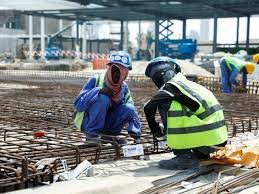
Whether you’re a visitor watching the city shimmer from a high-rise or a local commuting through a newly built tunnel, know that someone worked hard for it—someone who probably took a break in the midday heat, as the law allowed them to.
Looking Ahead: A Model for Others to Follow
As climate change intensifies, and summers grow longer and hotter globally, the Midday Work Ban sets an example other countries can learn from. It’s a simple yet powerful way to combine compassion with compliance.
Cities that want to grow sustainably must look at how they treat the hands that build them. Dubai’s policy shows that with planning, awareness, and a human touch, progress and protection can go hand in hand.
And for every worker taking shelter under a shaded tent in July, it’s not just about escaping the heat—it’s about being seen, valued, and respected.
In Conclusion
The Midday Work Ban in Dubai is more than a seasonal rule. It is a powerful statement of care. It transforms harsh working conditions into manageable ones and turns a potentially deadly summer into a survivable one.
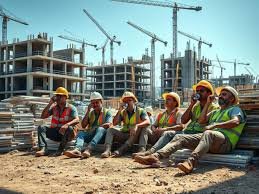
Dubai’s desert sun may be fierce, but thanks to the city’s thoughtful governance, its commitment to human dignity shines even brighter.
Do follow UAE Stories on Instagram
Read More: Easiest Free Zones to Register a Business in 2025










